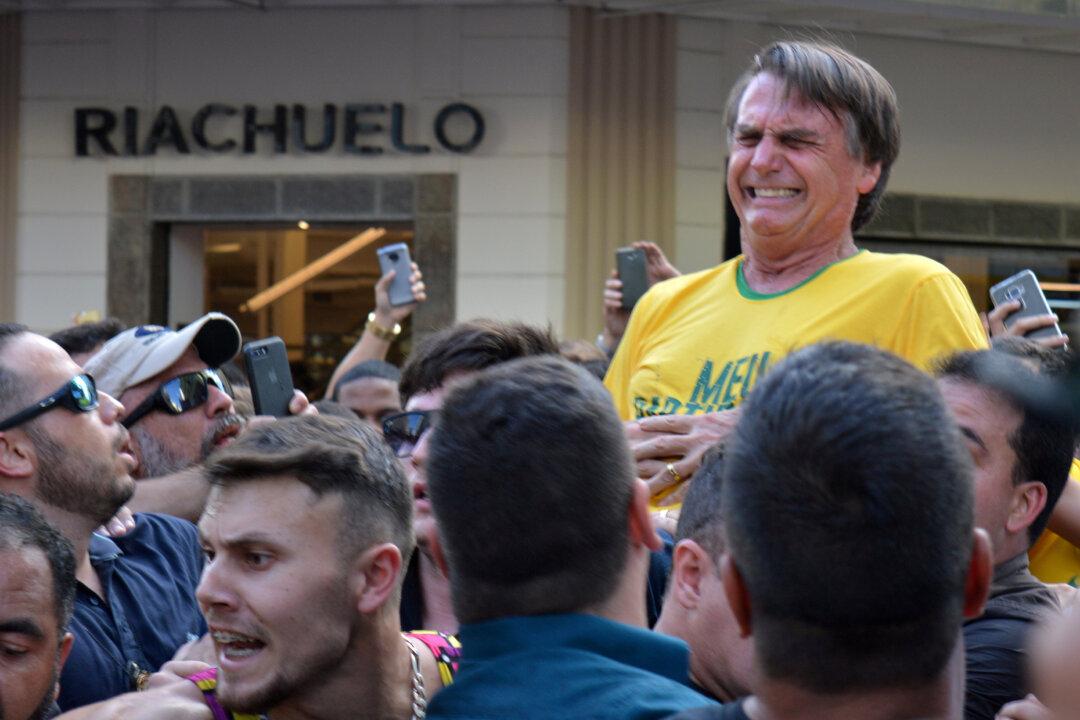BRASILIA, Brazil—Already an unusual election campaign featuring a convicted former president trying to run for office, Brazil’s presidential race took a violent turn when leading candidate Jair Bolsonaro was stabbed during a campaign event on Sept. 6.
The conservative candidate Bolsonaro, usually described in media as “far right,” is a former military officer and congressman and leader of the Social Liberal Party. He is currently in the hospital recovering from his wounds.The alleged attacker, Adelio Bispo de Oliveira, is in police custody. He has reportedly said he was acting on divine orders.

